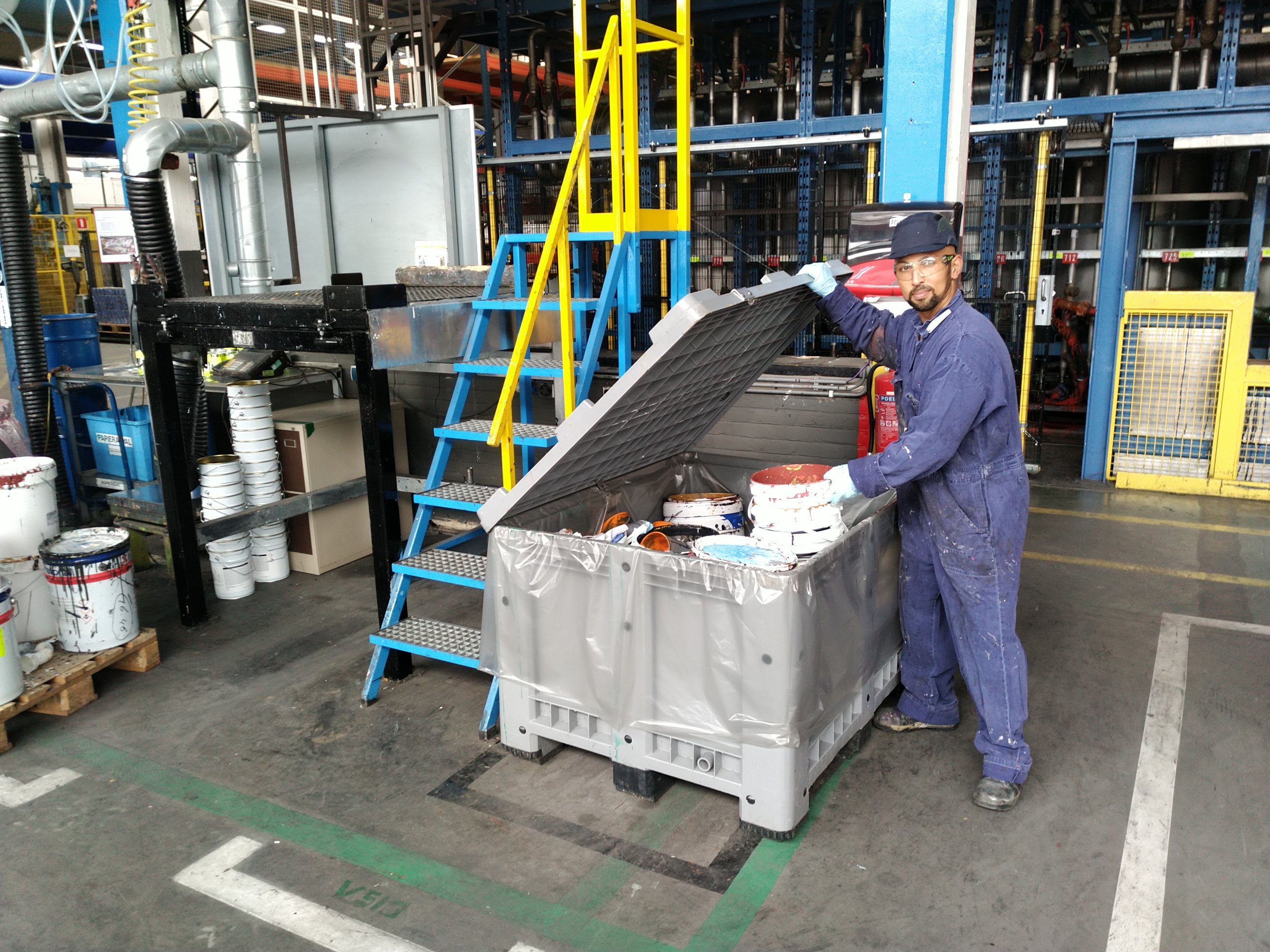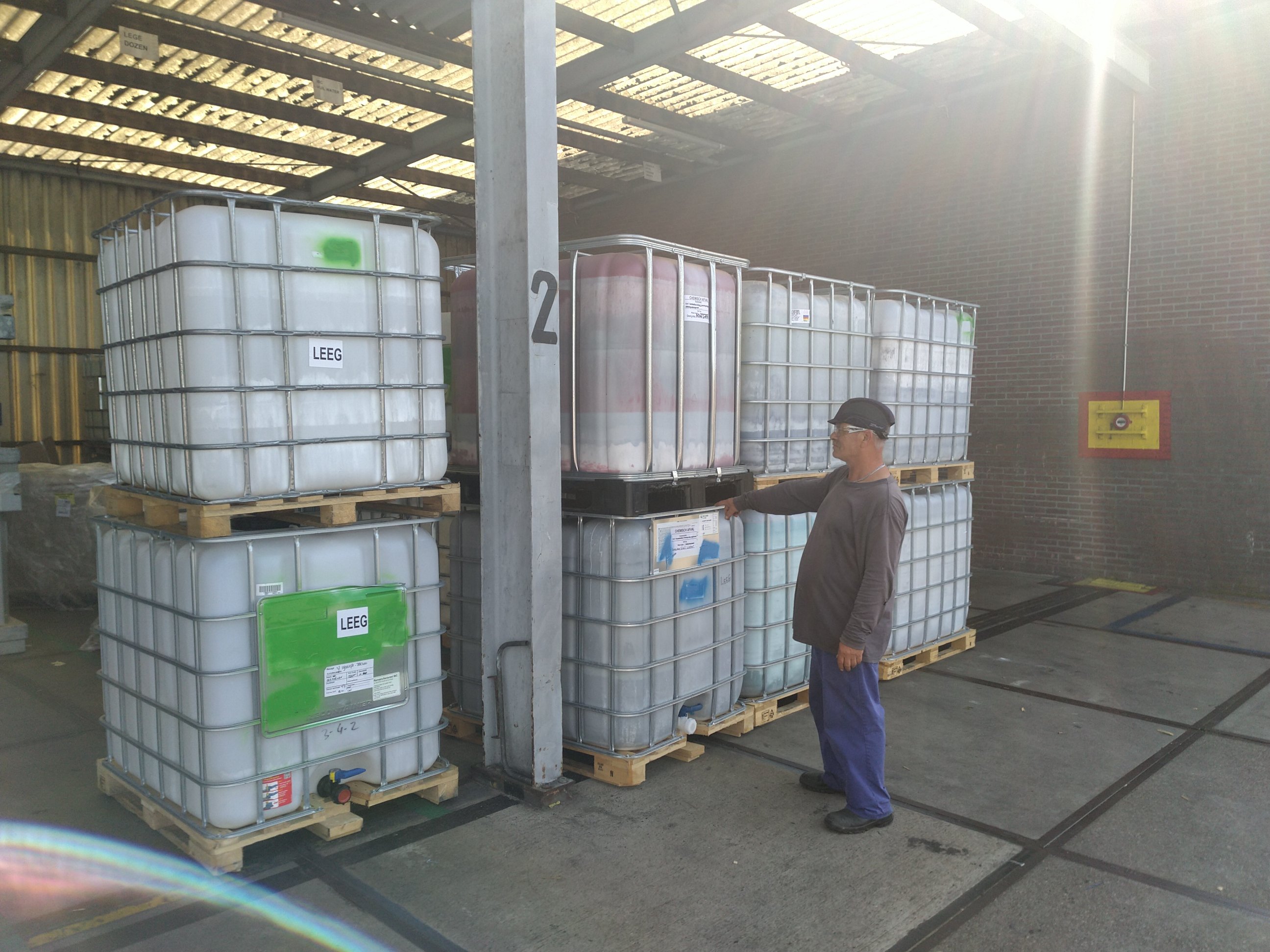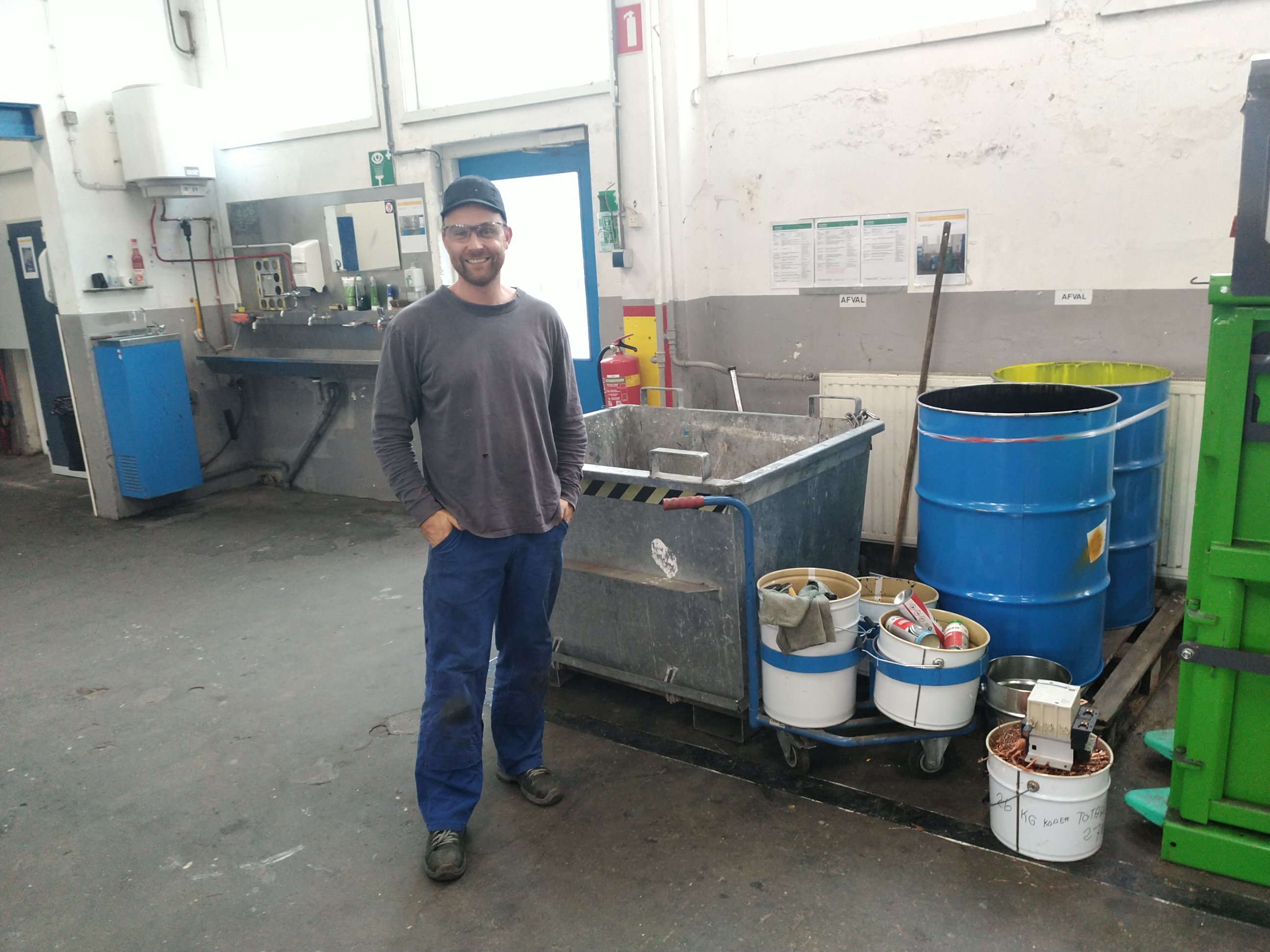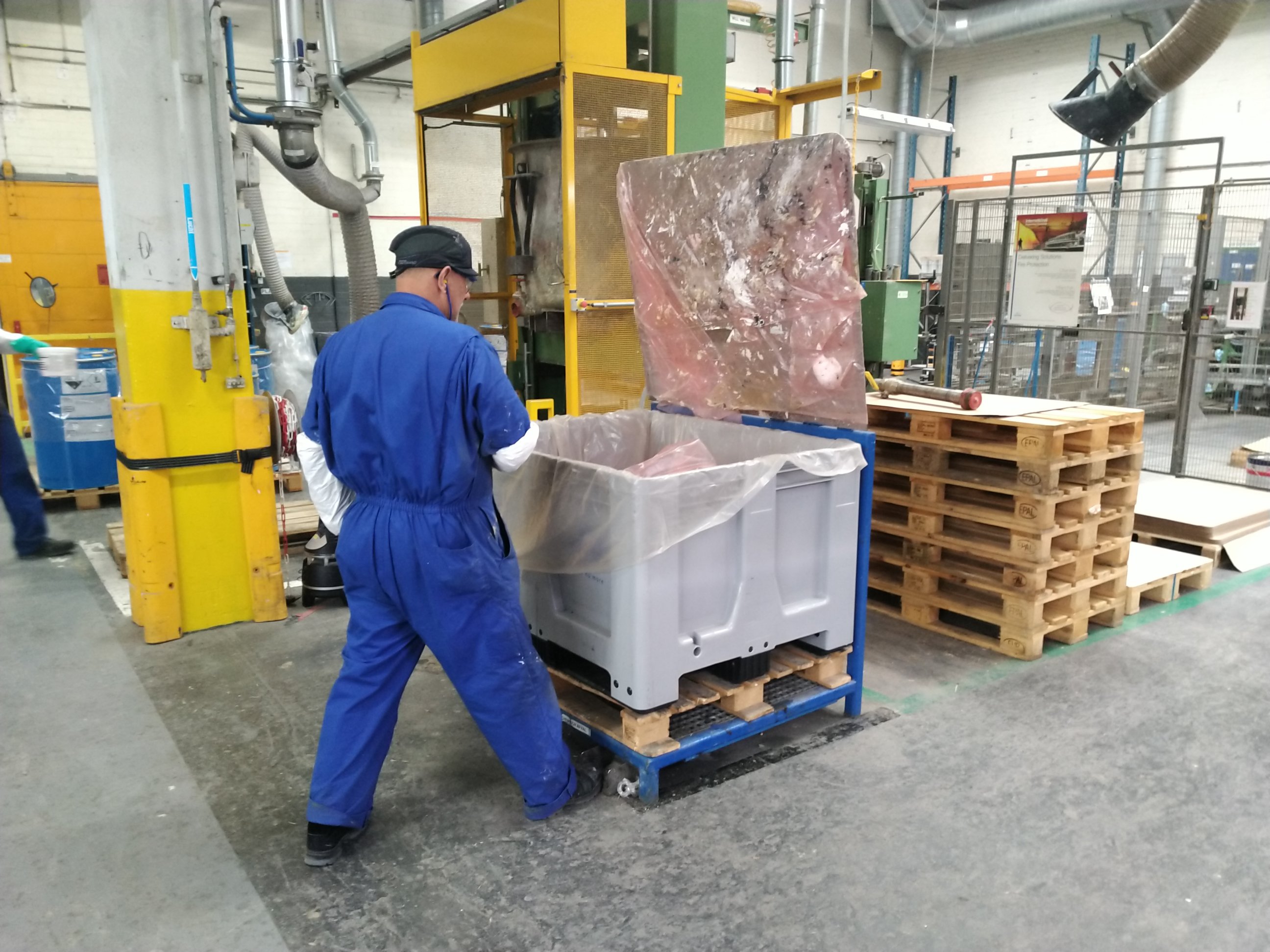If you don't know the solution exists, you can't apply it. And that's why the wastewater from the AkzoNobel production site in Wapenveld was incinerated. That is a good, responsible and safe way. Milgro came up with a better one. AkzoNobel HSE&S manager Joost Scheepers talks about it.
At the production site in Wapenveld there are three factories where paint is made. Wapenveld is known for the diversity of paints made there. Small volumes are made here, with difficult recipes. Think of decorative paints and lacquers for cars or trucks, but also complex coatings for yachts, windmills or drilling platforms.
One-stop shop, that makes a difference
Waste processing used to be handled by AkzoNobel's purchasing organization in Wapenveld. It had to deal with different types of waste processors. That could be simpler and less laborious. That is why Milgro was asked to take over that task. For Joost Scheepers, that has a big advantage. AkzoNobel is a large multinational that has ambitious targets for waste, 5% less waste each year, and dumping is not allowed. Scheepers reports monthly results from his site to headquarters. "I had to collect those from the various processors. Calling everyone back, of course. Now I get a complete overview from Milgro on every second day of the month. One-stop shop, that makes a difference."

Operator Tinting factory at collection of paint waste.
Burn rinse water or treat it?
Much of AkzoNobel's waste is water, rinse water. This occurs when tanks in which the paints are made have to be cleaned. The water then contains residues of binder and pigment. Previously, the rinse water went to the waste incinerator. That is a safe and responsible way of processing, but it can be done in a higher quality way. Milgro knew a party that can clean wastewater so that the water can be reused. Scheepers admits, "We would never have come across this party ourselves. Then you see that Milgro has good connections in that world."

The waste coordinator at Intermediate Bulk Container (IBCs) with dirty water
We would never have come across this party ourselves. Then you see that Milgro has good connections in that world..”
The right permits
For AkzoNobel, it is important that this party has the proper environmental permits to perform the cleaning task properly as well. "We are a large organization, we require that," Scheepers says. "Milgro then takes care of that." Meanwhile, the rinse water is neatly cleaned. This way of handling wastewater costs AkzoNobel a little more money. "But we do feel we have to do this."

TD mechanic at separate collection of technical material
Moving toward 0% residual waste
"Actually, we want to get to 0% residual waste," Scheepers continues. Every six months, the HSE&S manager consults with Milgro about "optimizations," as he calls them. This results in interesting action points. Plastic buckets used to go with the residual waste, but now they are collected separately. Saves 800 kilos a year. Packaging film, idem, almost 6,000 kilos. And pigment bags, same story, more than 40,000 kilos. "The separation rate keeps going up. I can track that in Milgro's online portal."
Every six months I have consultations with Milgro about optimizations. This results in interesting action points. The separation rate keeps going up. I can track that in Milgro's online portal.
Optimizations and low-hanging fruits
Recently, Scheepers asked Milgro to conduct an on-site audit. "Then my contacts from Milgro come to Wapenveld, put on their gloves and just pull open all the waste bins. Looking for where things can be improved." Furthermore, Scheepers periodically has his processors audited. "I want to know if our streams are being processed in a responsible way." Great strides have been made recently, AkzoNobel's HSE&S manager believes. "The low-hanging fruit has pretty much been picked. Now it comes down to the last percentage points!"

Operator at a waste container in plastics plant
Learn more
 Would you like to know more about our approach or discuss the possibilities for your organization? Make an appointment now with Paula van Hoorik, Senior Circular Economy Officer at Milgro.
Would you like to know more about our approach or discuss the possibilities for your organization? Make an appointment now with Paula van Hoorik, Senior Circular Economy Officer at Milgro.










